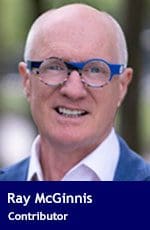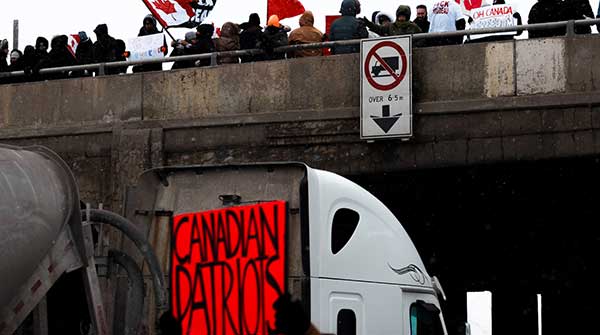Was the Emergencies Act simply a political ploy used to re-elect the Trudeau government?
 Testimony before the Public Order Emergency Commission reveals the case for the government invoking the Emergencies Act was either weak or very weak.
Testimony before the Public Order Emergency Commission reveals the case for the government invoking the Emergencies Act was either weak or very weak.
In fact, Prime Minister Justin Trudeau even opposed members of his cabinet or senior public health officials from meeting with protest leaders to discuss the scientific basis for the mandates. The protest leaders had hoped that, by travelling to Ottawa, they could air their views with those responsible.
But even before they arrived, Trudeau began to label them as a “fringe minority” with unacceptable views.
The federal cabinet knew on February 12 that the City of Ottawa had already reached an agreement with the protesters to de-escalate the conflict by removing most of the trucks from the streets. By noon on February 14, 102 protest vehicles, including 42 trucks, had been removed from city streets and only Wellington Street, designated as a Parliamentary Precinct Street, had trucks remaining. The city had agreed that this was acceptable because the protest was against the federal government and not against the city.
 |
| Related Stories |
| Opposition to Trudeau’s censorship bill swells
|
| Trudeau has irreparably damaged our country
|
| We live in a time of a leadership crisis |
That same day, Deputy Minister of Public Safety Rob Stewart presented cabinet with a “Proposal: Trucker Protest Engagement,” supported by Ontario Provincial Police Insp. Marcel Beaudin and which contained the assurance that Police Liaison Teams were ready to make contact and negotiate with the protesters to defuse tension.
OPP intelligence chief Supt. Pat Morris – the key person supplying cabinet with intelligence updates – revealed in testimony that there was no intelligence information suggesting that the nation’s sovereignty was under threat. In fact, Morris was astonished by the allegations of “extremist violence” since he had seen nothing to support that conclusion.
Despite allegations to the contrary:
- No convoy protester was responsible for arson in Ottawa
- No protesters in Ottawa had been charged with a firearms offence
- No protester was involved in money laundering or terrorism
- The protest was ruled to be legal by an Ontario court (February 7)
- Over 88 per cent of crowdfunding came in mostly small donations from Canadians
- There was both ethnic and gender diversity among the protesters.
But none of those facts stopped Trudeau from invoking the Emergencies Act.
We now know from commission testimony that the government was determined to build a case against the protesters. In fact, by February 6, the Prime Minister’s office even hatched a plan to apprehend the children of protesting parents.
While the Liberal-NDP coalition was able to pass the Emergencies Act on February 14, sober second thought prevailed in the Senate. When it looked like the Senate would defeat the Act, the Prime Minister quickly held a press conference to announce he was lifting the public order emergency before the Senate vote.
Public trust in government suffers when it is hobbled by divisive politics. There is every indication that the vaccine mandates were not about ‘the science’ but were politically calculated to create a wedge issue to help re-elect the Trudeau government.
What else can explain invoking the Emergencies Act hours after an intelligence briefing from the Ontario Provincial Police that concluded, “The mood today was again, calm, festive and family-oriented … Many of the speakers were promoting love and peaceful protest, some even taking quotes from the Bible.”
A credible report from The Rouleau Commission will avert further erosion of trust in government. Governments must be forbidden from using the Act to punish their opponents, especially when they are engaged in legal protests, and especially when they pose no credible threat to the nation.
Ray McGinnis is the author of Writing the Sacred and Unanswered Questions. Earlier in his career, Ray was a program staff in education for the United Church of Canada, serving in several congregations and at the denominations’ national office (1986-95).
For interview requests, click here.
The opinions expressed by our columnists and contributors are theirs alone and do not inherently or expressly reflect the views of our publication.
© Troy Media
Troy Media is an editorial content provider to media outlets and its own hosted community news outlets across Canada.


